by Kelly Amis
Today, as we celebrate Martin Luther King, jr., I am thinking about the continuing plight of black boys and men in America, especially the issue of unequal treatment by our school system—including with regard to discipline and punishment—and the fact that our nation maintains the world's largest prison system, which is disproportionately filled with black and brown men.
A few statistics to inform or remind you of the situation:
Black boys are three times more likely to be suspended or expelled from school than their white peers…for the same behavior.
This impacts a child's likelihood to drop out of school. From the American Bar Association “Prior suspension is more likely to cause a child to drop out of high school than any other factor, including low socioeconomic status, not living with both biological parents, a high number of school changes, and having sex before age 15. …Students who are expelled from school—that is, removed from school for more than 10 days—are even less likely to graduate from high school.” (Link to full text below).
Black boys are also much more likely to be charged with a crime in school for minor behavior infractions—we’re talking about being late to class, talking back to a teacher, dress-code violations, etc. This practice has exponentially grown with the increased presence of police in our schools. Students are getting criminal records for behaviors that used to (maybe) warrant a phone call home. (Articles on this also below).
Once arrested, black boys are nine times more likely to receive an adult prison sentence than white youth.
America has more of its citizens incarcerated than any other country in the world (not percentage-wise, in sheer number, which is incredible). We have a higher percentage of black citizens (mostly male) incarcerated today than South Africa did at the height of apartheid.
These are just a few of the outrageous facts that show a lingering bias in how our society and public institutions treat black males. You have probably heard more such statistics recently as both “the school to prison pipeline” (which we portray in the first TEACHED short film, The Path to Prison) and the over-incarceration of black males have gained much more attention of late.
I have to admit to having mixed emotions watching the plight of black males become a “new” hot topic in the public policy churn. Even the most powerful black American man in the world, President Obama, has become much more publicly vocal about and focused on the continuing truth that black males in our “land of the free” are treated as lesser people and, often, better prepared by our institutions and policies to fill jail cells than to follow in his footsteps. Who better to demand change? (Read about his recent Executive Order.)
This represents a potential for dramatic change, but as someone who has been advocating for black students—especially black males—since I taught in South Central, Los Angeles (and lost the love of my life, a little boy named Malik, in 2004) I am actually torn on this new attention, just as I was when the related issue of teacher quality became the “new” hot topic in the education policy churn (it’s still “hot” but universal pre-K seems to be gaining on it).
I hate to be so cynical! It is a great thing to see the information and statistics--the TRUTH--getting increased attention, but I have witnessed this type of policy churn many times and so often it seems to have led to little fundamental change or institutional transformation.
Perhaps this will be different. There are many warriors on the ground fighting for educational and judicial equality, and these warriors will still be fighting when the media moves on to the next “hot” topic. And it is possible that the American public to whom this is “new” news will respond to it with a heightened and unprecedented level of compassion and preparedness to right the wrongs. We now have leaders at the top of the public policy pyramid making equal treatment by our school system and the courts top priorities: President Obama as mentioned; newly-seated Senator Cory Booker of New Jersey, who is calling for the elimination of profit-making prisons; and Congressman John Lewis, still on the frontlines of the march for civil rights, just to name a few. We also have several generations of Americans who personally fought for and/or have experienced a more integrated and just America and are now enjoying an increased connectedness across racial and geographic lines.
One of King’s great quotes is “An individual has not started living until he can rise above the narrow confines of his individualistic concerns to the broader concerns of all humanity.” In America, that broader concern requires us all to demand equal and fair treatment for our black boys and men until it is achieved. The time is now. Wouldn't today would be a good day for you to get involved?
Read:
http://www.npr.org/2013/06/02/188125079/why-some-schools-want-to-expel-suspensions
Watch:
The Path to Prison, now on Vimeo: https://vimeo.com/ondemand/teachedfilms
